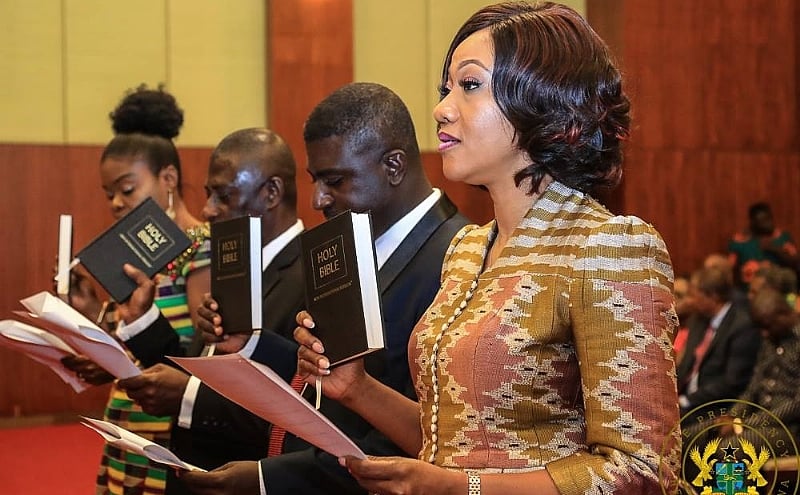Franklin Cudjoe, President of IMANI Africa, a prominent policy think tank in Ghana, has publicly endorsed calls for the removal of the Electoral Commission (EC) Chairperson, Jean Mensa, and her deputies, Dr. Bossman Asare and Samuel Tettey. Cudjoe’s endorsement adds significant weight to the growing chorus of voices, particularly from the opposition National Democratic Congress (NDC), demanding accountability from the EC leadership for their handling of past elections and what is perceived as a breach of public trust. Cudjoe’s position underscores the escalating concerns about the EC’s transparency, financial management, and commitment to upholding voter rights, issues that transcend partisan politics and strike at the heart of Ghana’s democratic integrity.
Cudjoe’s critique of the EC centers on what he perceives as a pattern of opaque operations, financial mismanagement, and a disregard for the fundamental right to vote. He highlights the disenfranchisement of voters in the Santrokofi, Akpafu, Lolobi, and Likpe (SALL) constituencies during the 2020 parliamentary elections as a prime example of the Commission’s failure to safeguard the democratic process. The SALL case, where residents were prevented from electing their parliamentary representative, became a symbol of electoral injustice and raised serious questions about the EC’s impartiality and commitment to ensuring universal suffrage.
While Cudjoe expresses his strong disapproval of the EC’s actions, particularly in the SALL case, he clarifies that he will not personally lead a petition for the removal of the commissioners. He emphasizes that IMANI Africa has already taken formal action by lodging a complaint with the Commission on Human Rights and Administrative Justice (CHRAJ). This petition focuses on holding the EC accountable for their conduct, demonstrating their high-handedness, evasiveness, and potential complicity in financial mismanagement related to electoral processes. Cudjoe’s approach suggests a preference for institutional mechanisms to investigate and address the alleged wrongdoings, rather than engaging in what might be perceived as politically motivated actions.
The growing public discontent with the EC’s performance reflects deeper anxieties surrounding the integrity of Ghana’s electoral processes. The issues raised extend beyond the immediate demand for the removal of the EC leadership, highlighting the urgent need for institutional reforms to ensure transparency, accountability, and public trust in the electoral system. This is particularly crucial in the lead-up to the 2028 general elections, which will be a critical test of Ghana’s democratic maturity.
The EC’s actions, particularly regarding the SALL constituency, have not only disenfranchised voters but have also fueled distrust in the electoral system, a crucial element of any functioning democracy. This erosion of public trust can have far-reaching consequences, potentially undermining the legitimacy of future elections and creating a breeding ground for political instability. The calls for accountability and reform are therefore not merely about addressing past grievances but are essential for safeguarding the future of Ghana’s democracy.
Cudjoe’s intervention, alongside the ongoing public debate and the formal complaint lodged with CHRAJ, adds momentum to the pressure on the Electoral Commission. The Commission faces increasing scrutiny of its operations and decision-making processes, with demands for greater transparency and accountability. The unfolding events and the subsequent responses from the EC and relevant investigative bodies will be crucial in determining the trajectory of electoral reforms and the restoration of public confidence in Ghana’s democratic institutions. The outcome of the CHRAJ investigation and the EC’s response to the mounting criticisms will significantly impact the perception of fairness and impartiality in the upcoming electoral cycles.


